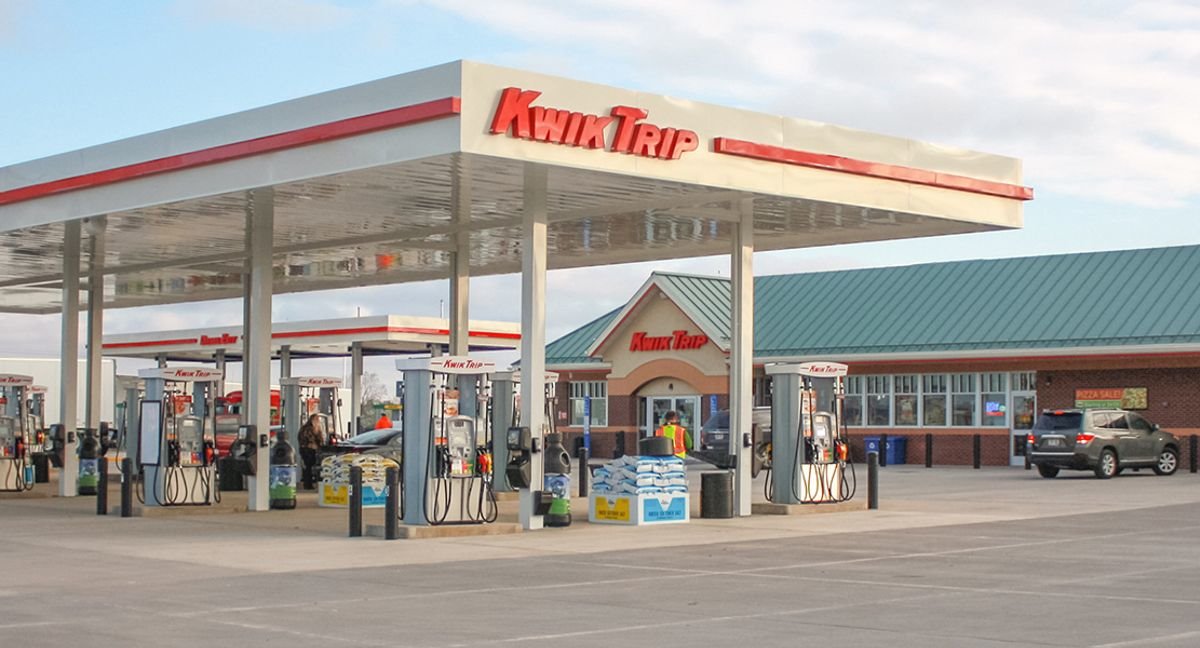
An excellent article written in C-Store Dive highlights the opportunities for setting up a food production facility for food items sold in forecourt shops. For the full article see the link at the bottom of this page
In the US, retailers like EG America, Weigel’s and Kwik Trip have built their own facilities to control the quality and consistency of their foodservice programs — and the payoffs are compelling.
Kwik Trip operates a sprawling 140-acre commissary campus with four buildings in Wisconsin, consolidating food production for the retailer’s more than 850 stores.
Each building encompasses one element of Kwik Trip’s dining landscape. There’s a beverage and ice cream facility that also makes its own plastic bottles for drinks; a bakery, which “really supplements our foodservice program because pretty much everything is on one of our buns,” said Micah Rupprecht, the retailer’s director of category management for foodservice.
There’s also a refrigerated kitchen where meals from fried chicken to take-home dinners, pizzas and meat snacks are produced, and a facility for sweet goods, like cinnamon rolls and doughnuts.
Commissaries are a boom to convenience store chains large enough to warrant them. They bring consistency and ensure quality. Food safety standards can be stringently enforced.
The supply chain is consistent. Perhaps most important, they give convenience retailers the flexibility to update and evolve their food offerings.

Different strokes for different c-stores
Having a commissary, “comes down to having more control over what you do,” said Bob Derian, former corporate executive chef at RaceTrac and current partner with The Business Accelerator Team, a convenience store advisory firm. “It gives you an idea of exactly what you’re serving and understanding what you’re trying to do.” The biggest benefit for Kwik Trip is that with the retailer in control of its own supply chain, it’s less likely to run out of supplies. “If I’m buying hamburger buns from elsewhere and they run out, I don’t have a lot to do about it,” said Rupprecht.
For Tennessee-based Weigel’s, the biggest benefits are consistency, food costs and waste reduction. “We can buy in bulk because we’re making items for 85 stores out of one commissary,” said Beth Hoffer, vice president of foodservice for the chain. “This also means we can upgrade ingredients for better quality.”
Food safety is also easier to control at the commissary, she noted. There are fewer variables than in the stores where there can always be interruptions from customers and there’s a full-time quality assurance manager.
Weigel’s 110,000-square-foot facility opened in April and by the end of this year it will be supplying food to all of the chain’s stores. Early next year, Weigel’s plans to start making private label items for smaller chains.
The company had been operating a bakery for around 12 years in a leased facility, “and we thought about where we would like to be in 10 years, so it made sense to have the commissary built,” said Hoffer.
The chain plans to expand its prepared foods to meet demand
Full article Making food in house: The business case for c-store commissaries | C-Store Dive